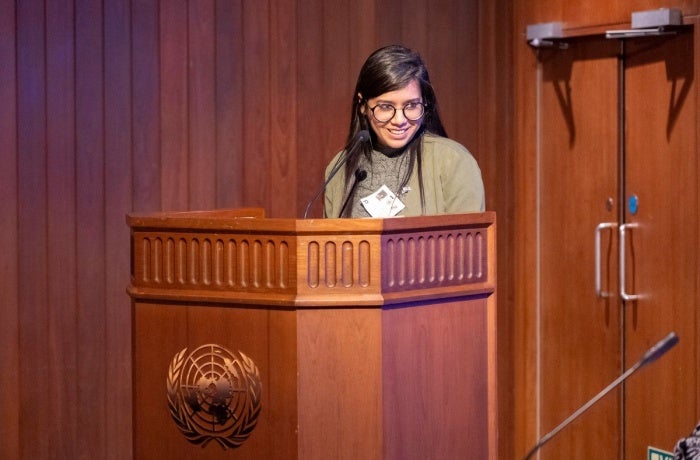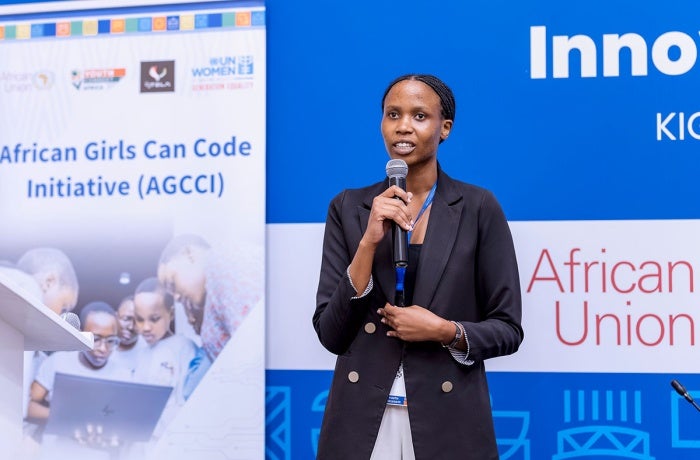Young leaders take center stage at CSW67 interactive dialogue
The 67th session of the Commission on the Status of Women (CSW67) marked a momentous milestone for youth representatives, who took part in an interactive dialogue around the CSW priority theme on Monday, 13 March. The event, organized by UN Women, saw the inclusion of youth leaders in the official negotiations for the first time, opening space for them to share experiences, lessons learned and best practices relating to the role of innovation and technological change in achieving gender equality and empowering women and girls.
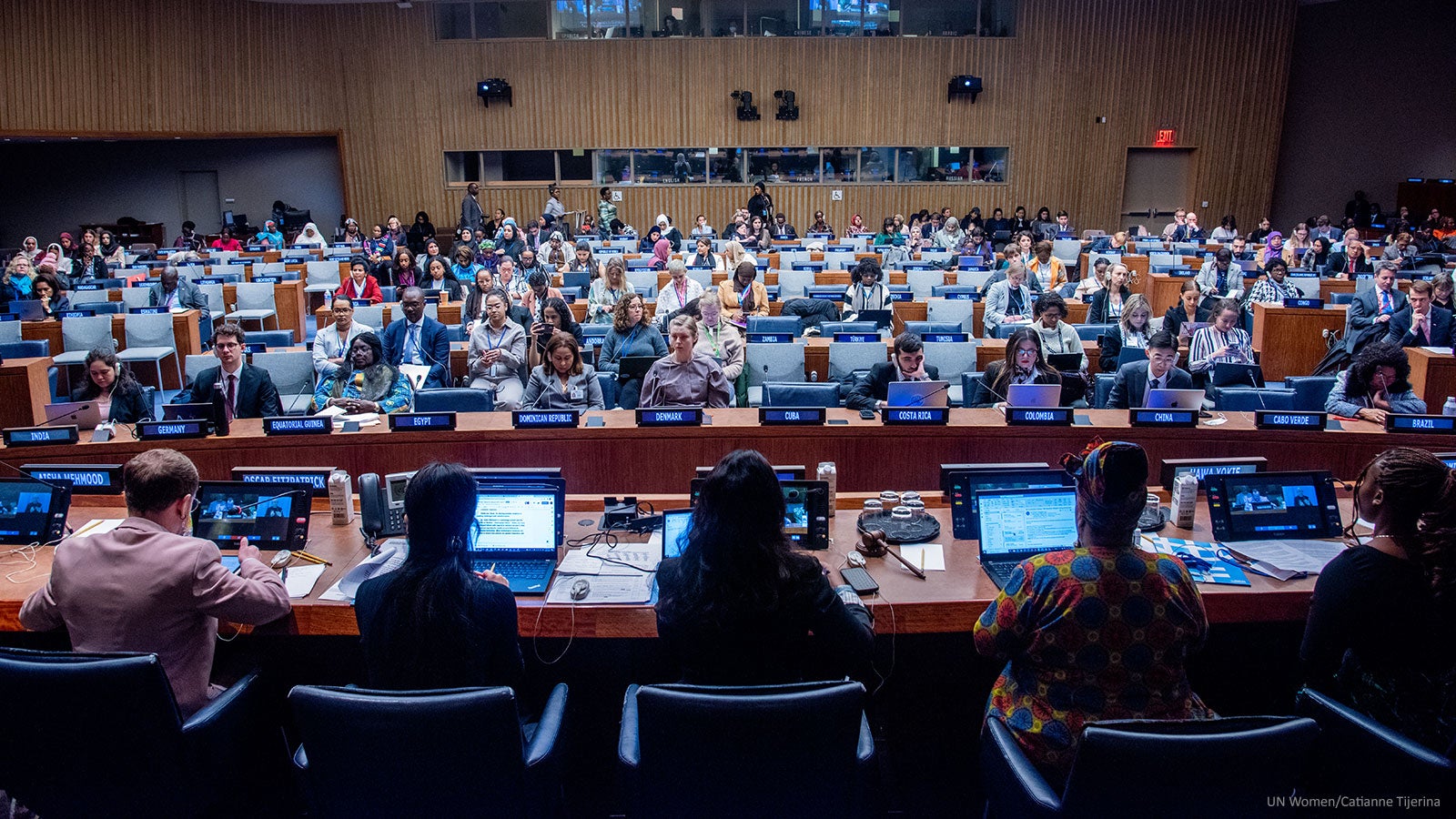
The interactive dialogue brought together a wide range of stakeholders—including youth leaders, activists, civil society and government representatives, and the private sector—to highlight the importance of collective responsibility for enacting inclusive digital policies. With the rise of digital technologies, youth representatives emphasized the essential need to ensure that no one is left behind, particularly women and girls in rural and marginalized areas, gender minorities and persons with disabilities.
The event was moderated by Chimguundari Navaan-Yunden, the Commission Vice-Chair designate, who opened the dialogue by highlighting the unique opportunity offered by this year’s CSW priority theme for young people to contribute to the normative framework on gender equality, technology, innovation and education in the digital age. Other participants included Marija Vasileva-Blazev, Officer in Charge for the United Nations Secretary-General’s Envoy on Youth, as well as over 40 youth speakers and delegates.
The panel was made up of five remarkable youth activists, including Oscar Noel Fitzpatrick, a multidisciplinary activist from Ireland; Alison Adrian Berbetty Omiste, a systems engineer and lawyer from Bolivia; Hawa Yokie, an innovator and STEM enthusiast from Sierra Leone and co-founder and CEO of the Kamara Yokie Innovation Center; Aisha Mehmood, a technology and feminist activist from Pakistan and founder of Baithak-Challenging Taboos; and Milica Knežević, from Serbia, senior test developer for an international IT company and an activist for the rights of persons with disabilities from Serbia.
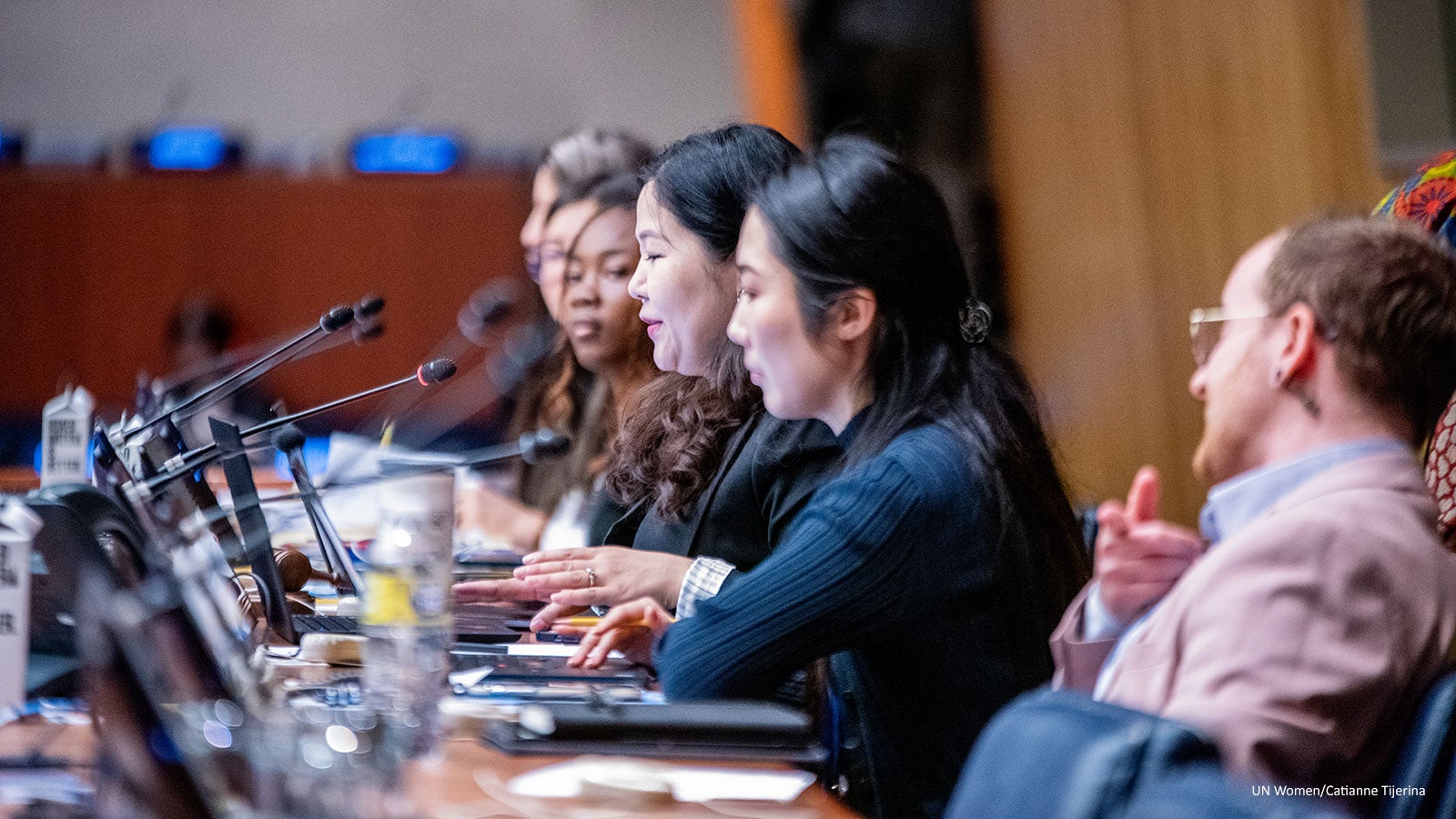
A major issue discussed during the dialogue was the prevalence of online violence and hate speech against women and girls. The youth representatives highlighted the importance of designing gender-inclusive tech-based solutions and advocating for digital policies that ensure equal access and opportunities for women and girls.
Milica Knežević emphasized that persons with disabilities represent the biggest minority group in the world, with over a billion people living with some form of disability. “Women and girls with disabilities are a population which is still among the poorest of the poor. Therefore, we must ensure affordability of devices, as that represents a first step and necessity for using technology, but also for raising awareness of technology’s importance. We need to support and encourage women with disabilities in developing digital skills,” said Milica.
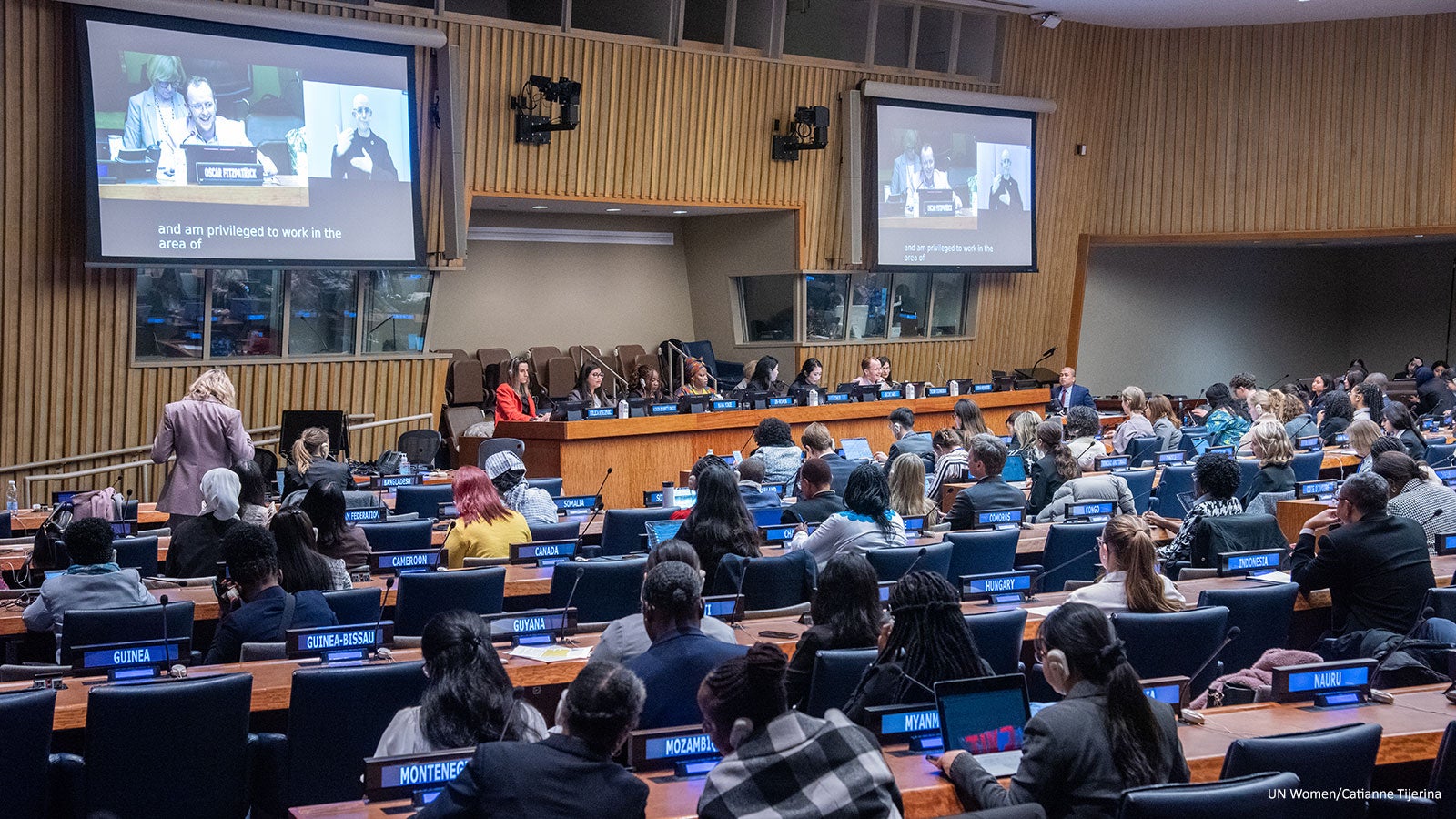
Aisha Mehmood, whose work centers around girls and women in rural communities—also among the most marginalized groups—emphasized the importance of expanding access to technology. “Technology access is a necessity. It should not be a luxury or a privilege for some,” she said. “There's a huge need for investments in policies and solutions that can localize technology, that can be available in languages people understand, that can leverage audio and visuals for users with low literacy, and that can make tech models inclusive for girls and women who are in these marginalized communities.”
Hawa Yoki addressed the need to institutionalize gender equality in technology and innovation and to empower girls in Africa, where the challenges faced by women and girls in this sector often go undocumented. “We need a collective effort from governments, private sector organizations, civil society groups and individuals. We need to design digital education curriculum that addresses women's needs, including online safety and security, and the potential of technology to empower women economically and socially. The curriculum should be accessible to women in all parts of the world,” said Hawa.
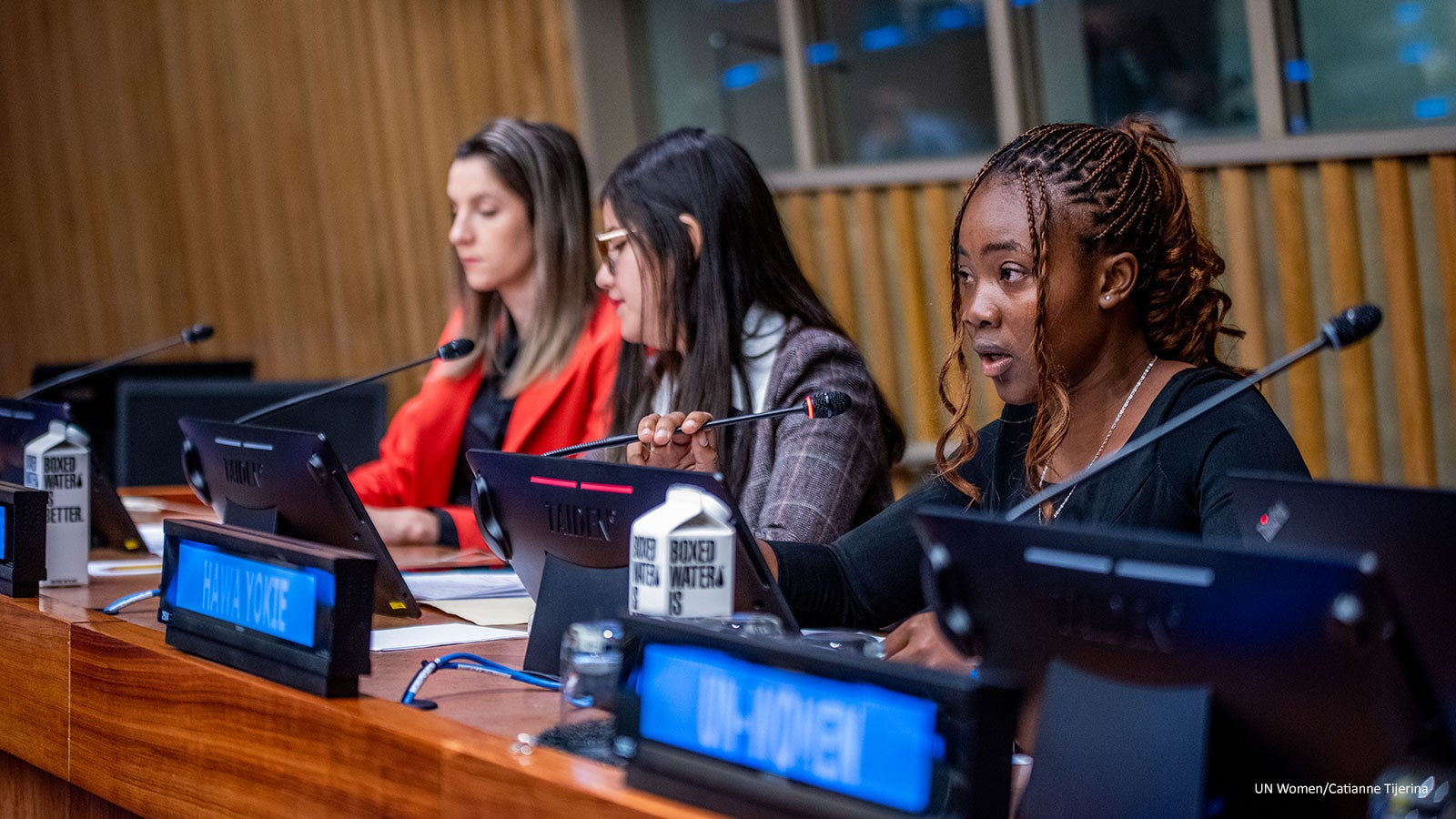
Oscar Fitzpatrick elaborated on the challenge of online hate speech and violence towards LGBTIQ+ youth. “To address hate speech and violence, platforms and users need clear pathways for moderation and accountability. One key element is to study the language of hate speech, ensuring that monitoring and moderation systems are trained to flag anti-transgender rhetoric in all its linguistic complexities. Strategies like Germany and France's respective hate speech legislation require the removal of hate speech within 24 hours of receiving a complaint, with transparency on how reports are handled. France also established a national hate speech reporting platform to make the reporting process clear to users,” said Oscar.
Alison Berbetty Omiste emphasized the need for women and girls’ increased representation in the tech-industry, noting that the advent of technology is creating new decision-making spaces where, at present, women are not included equally. “Issues such as cybersecurity, technology companies, cryptocurrencies, artificial intelligence, technologies applied to e-government, data analysis and other areas are significant in the public and private spheres and it is essential to have the voices of women,” Alison added.







